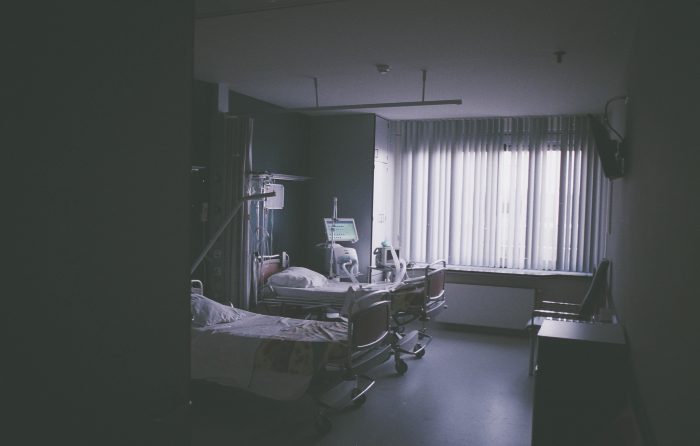*Editor’s Note: This piece is part of a series—lucky you. Head to the author’s profile to continue reading.
~
Cold, shivering, nauseous, scared. I am alone in an emergency room hospital bed. 60 seconds prior I had my first intramuscular methotrexate chemo shot (yes, shot) followed by IV Compazine. And now I can’t move. I am relegated to this two-inch thick plastic mattress, to this dark room, to using the hospital landline to call my husband since my cell phone died hours ago. The doctor assured me that I could come here alone, that I could drive myself. I’d be angry that she lied, but I didn’t have the energy to be anything other than sick.
But let me back up, let me explain how I got here.
It was January of the new year, 2017, and I was looking forward to leaving this heartbreak behind. Post-D&C, the doctor told me that she removed “a lot of tissue,” and looked at me sternly, like this was supposed to mean something to me. I cried for more pain medication as my uterus cramped violently. As I made my way to the recovery room toilet, a thick streak of blood flowed down my right leg, a cruel reminder of what I’d lost.
After the surgery to remove the molar tissue that had taken up residence in my rapidly expanding womb, I felt like myself again. I could drink wine! I could eat soft cheese! And cold deli meat! This was my only consolation, but it was enough for me to focus on as I slathered my ham and swiss sandwiches with mayonnaise and ate my feelings. The nausea and fatigue that had become my baseline for the last six weeks had dissipated and my life was picking up where it had left off pre-pregnancy.
Recovery was quick and easy; within 3 days I was back at work. The doctor wanted to monitor my blood for the next few weeks since there was a slight risk of a rare form of cancer occurring that would require chemotherapy. If my HCG (human chorionic gonadotropin) levels went up, it would mean I had a malignant tumor in my uterus. She gave little attention to this seemingly life-threatening possibility, so I, too, gave it little thought and was sure I’d be fine. As long as my levels decreased over the next few weeks, I would be given a clean bill of health.
HCG is the hormone produced by the placenta after implantation and should decrease to 0 after pregnancy. According to the American Pregnancy Association, HCG levels usually peak between 9-12 weeks of pregnancy, with the highest amount being 288,000 milli-international units per milliliter (mIU/mL). Increased levels in the bloodstream lead to symptoms like nausea, fatigue and breast tenderness; higher levels lead to more severe symptoms. When I had gone in for my surgery, my HCG measured 769,743 mIU/mL and suddenly it all made sense.
Fast forward to a regular old Wednesday at the beginning of February – I was at work in our downtown Baltimore office, happy that I could fit into one of my favorite Tahari dresses again, and out to lunch with one of my colleagues. She had previously confided that she’d had a miscarriage a few months ago, so I wanted to share my experience and ask for her support and advice. Having a miscarriage can be an incredibly isolating experience…my husband, my friends and my family had no idea what I was going through. They were incredibly supportive every step of the way, but none of them had actually experienced pregnancy loss before. They just didn’t get it.
While I by no means delighted in my friend’s misfortune, it was comforting to know that she had been through a similar experience. She shared that she, too, had had a molar pregnancy and her HCG levels went back down to zero after a few weeks. She provided words of reassurance and understanding as I struggled not to cry over my chopped salad.
As we made our way back into the office and up to the third floor, I got a call from the doctor that would change my life. While my HCG levels had initially decreased to around 30,000, they started to climb again rapidly in the subsequent weeks and were now at 86,675. I made my way from the stairwell where I had initially taken the call to a dark, vacant office, where she told me that yes, technically I had cancer and yes, she’d pulled some strings to get me the first appointment tomorrow with an oncologist. “Things are going to happen very fast from this point forward.” I hung up the phone, told my boss that I had cancer, and that I had to go.


 Share on bsky
Share on bsky





Read 1 comment and reply